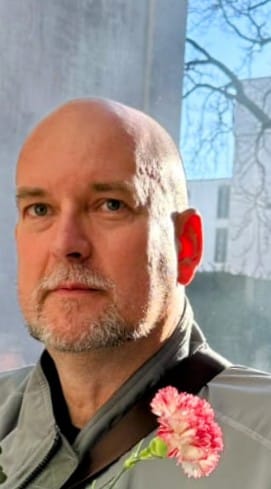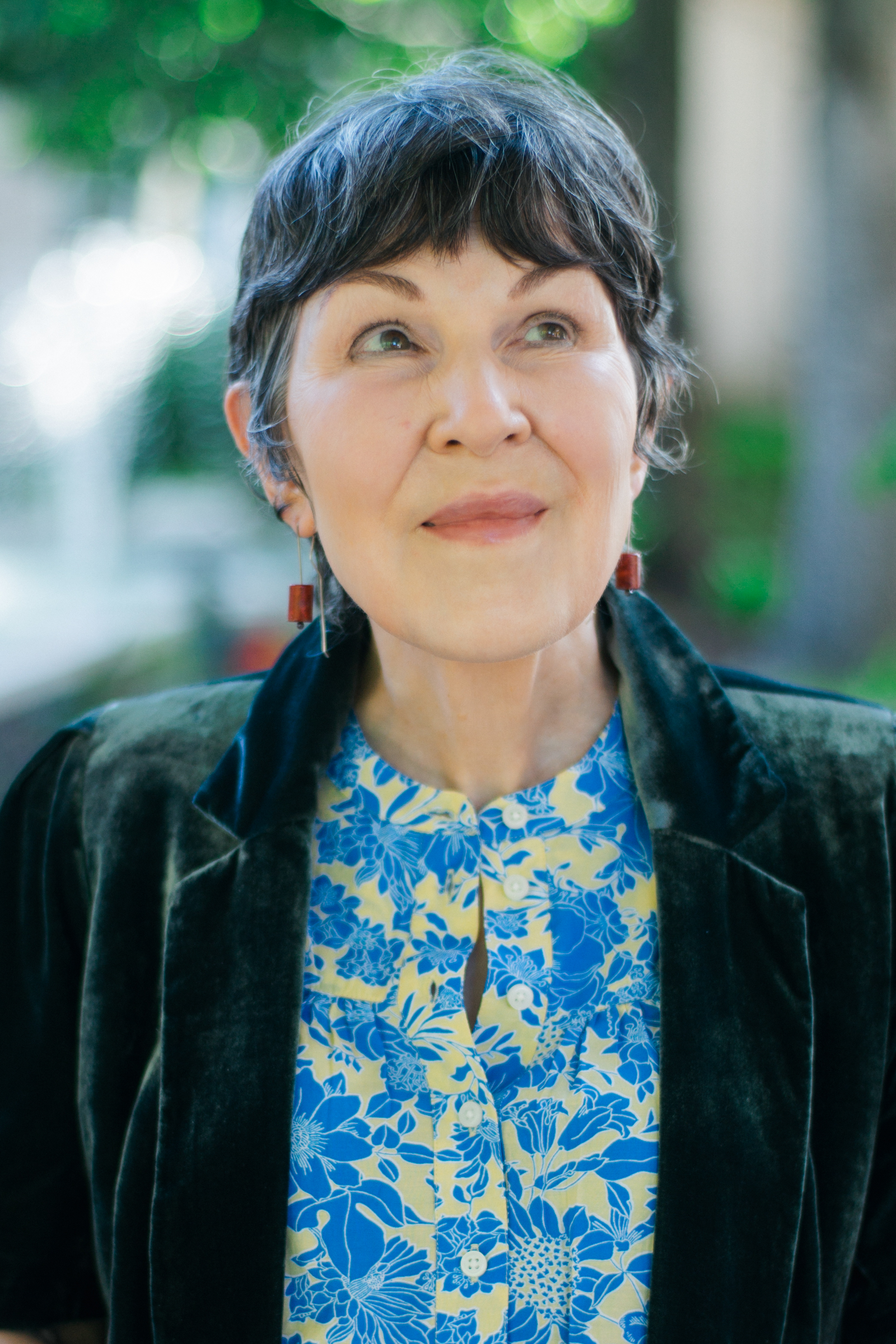Under a canopy sky
a man settles down
a plastic apron on.
As the train slips away
evenly, a ghost is left back on the tracks,
I open the window,
glance into the courtyard
at the statue of Kirov.
The Marshall as usual is raising his hand:
Greetings, People
Hello-Hello, fellow Communist Party members.
The pigeons shitting on it
belong to this land,
not to the hand that is hiding
the clouds with its greeting,
while flies attack a fruit stand,
and melons spill from a pile,
and armor-plated bursts
flash from the hill here,
the sun is rising,
and at the other window,
there’s a sound
settling over that land.
A new, nearly-red sound.
It flies in through the window.
Mornings
there’s the least resistance
My worker-father
confers with himself
Then the doorbell rings
Then a lightning bolt
The backstabber
happens by
In Daddy’s room
the weather is at home
Always ledger-filled
Always smoke-filled
At times one felt
it would be dreadful and meaningful
Of course there’s that letter to the father
it says in so many words the tree is already green
he makes our air by taking water and light
and it is something—breathtaking
Won’t you come and behold the icy deadness?
You can barely reveal yourself once a day
The door has shaken up the house
with me inside it
The sun is shining
A bit much for morning
Afternoon—barely any difference
The house is shaking itself up
the sun
with me inside it
I am
a more unstable border
Horizon
of a world created from last gasps
The day carries them with it
Again and again I feel my tongue in my mouth
The day
The room
The sun
The door
Bonkers
I think to myself
and me inside it
A mouth-trap snaps over me
Don’t worry it’s what’s called the sky
At the top of the slope lies glimmering grass
Where are you, man-of-glass
Today he’s batting his lashes up there
Heaven on hill on grass
What’s going on goes on and on
Behind its backside a dog shits its shit
In the middle upstanding glass
Small house on the outskirts
In this colony I was
for one second long
at home
The eyes, rivers and grass—
To each one’s inclination:
The dying off, the dirt.
House, that bears the imprint of a door, you,
as a wrapped packet in a word chest, the dear sweet boy,
the off that he owns.
And
yet gloriously
empty of language:
You are—a real human being
A crow in the airspace;
You, little man,
are one man—
You are a man, who disbands
and offs your own briefcase
by means of black coffee
or salt
or sunshine.
Lunchbreak.
Then: off.
One holds off two seconds …
Then one goes home—to a garden
which is different from the year before last.
One often stands in front of it
as if still waiting around
for something other.
Copyright © 2023 by Northwestern University. Published 2023 by TriQuarterly Books/Northwestern University Press. All rights reserved.
Matthias Göritz (1969), a German poet, writer and translator, is the author of three novellas, four poetry collections Loops (2001), Pools (2006), Tools (2011), and Spools (2021) as well as the novels Der kurze Traum des Jakob Voss (2005; The brief dream of Jakob Voss), Träumer und Sünder (2013; Dreamers and Sinners), Parker (2018) and Die Sprache der Sonne (2023, The language of the sun). Göritz’ novels and poetry have been widely translated. The poetry collection Colonies of Paradise (Triquarterly, 2022) is available in Mary Jo Bang’s wonderful translation to American readers. Matthias Göritz has received several awards for his work to date, including the Hamburg Literary Prize, the Mara Cassens Prize, the Robert Gernhardt Prize, the William Gass Prize and the International Pretnar Award. Goritz teaches at Washington University in St. Louis.

Mary Jo Bang is the author of nine books of poems—including A Film in Which I Play Everyone, A Doll for Throwing, and Elegy, which received the National Book Critics Circle Award. She has published translations of Dante’s Inferno, illustrated by Henrik Drescher, Purgatorio, and Colonies of Paradise: Poems by Matthias Göritz. Her co-translation, with Yuki Tanaka, of A Kiss for the Absolute: Selected Poems of Shuzo Takiguchi, will be published by Princeton University Press in 2024. Her translation of Paradiso will be published by Graywolf in 2025. She teaches at Washington University in St. Louis.

“Our idea in calling this the ‘Translator’s Page’ is to show the ways and/or languages in which a translator works. Monthly posts may include translations from different languages and styles and centuries. The connective thread between them is the ability of the translator to interpret cultures and time periods for the contemporary reader.”
—Jonathan Wells, curator of The Translator’s Page